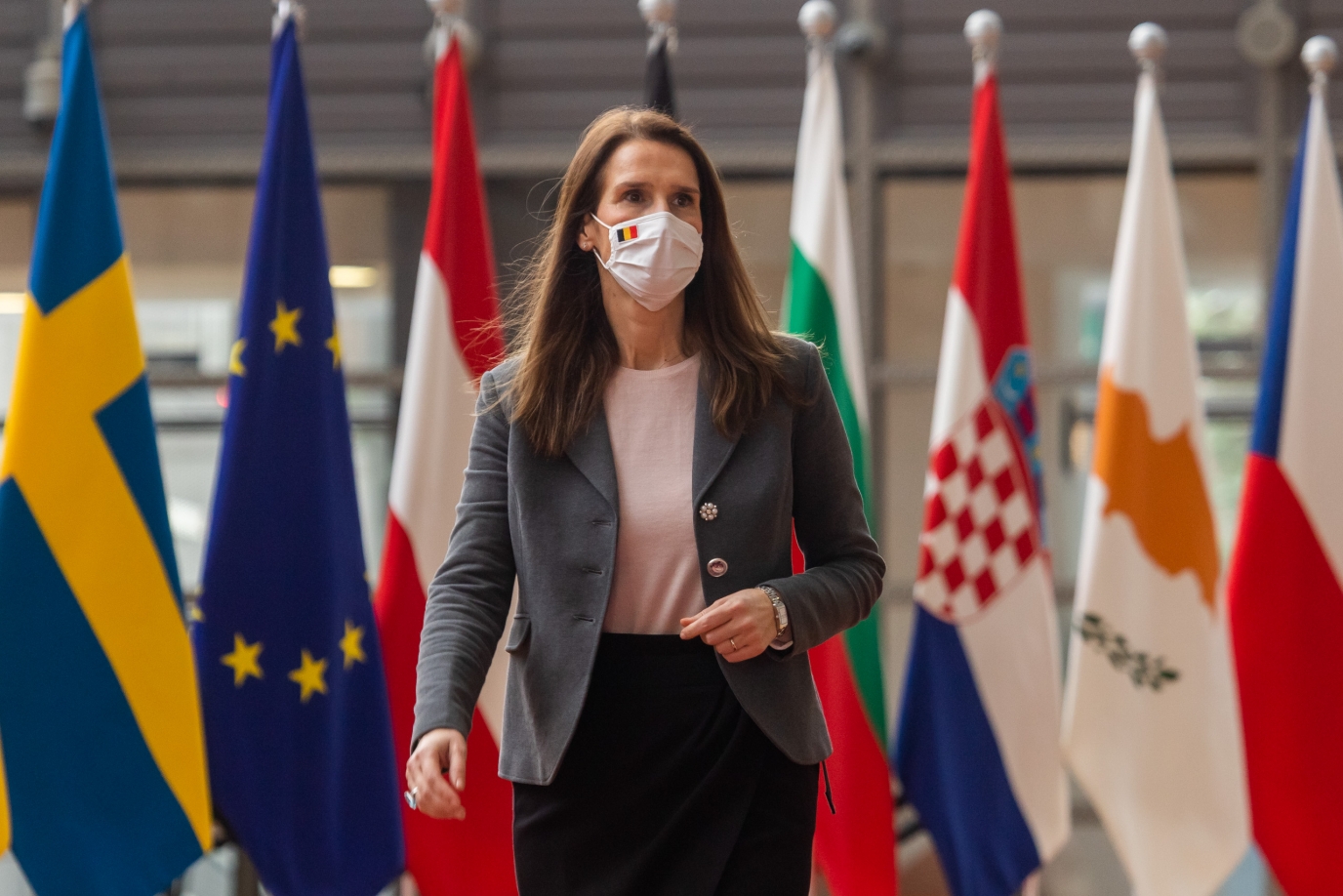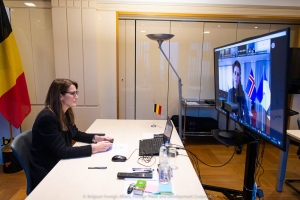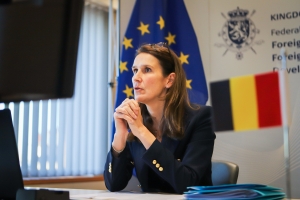Extraordinary Council of EU Foreign Ministers meeting on 25 February: conclusions
Today, Friday 25 February, the Deputy Prime Minister and Minister of Foreign Affairs, Sophie Wilmès, and her fellow ministers met in Brussels for a Foreign Affairs Council meeting following the Russian invasion of Ukraine.
First, the Council formally adopted the second, massive sanctions package against Russia and, in part, Belarus. "This is a solid package of sanctions that meets our objectives of targeting those responsible for this unprovoked, illegal invasion of Ukraine and economically isolating the regime in Moscow," said Sophie Wilmès. The new sanctions target financial institutions, certain exports in the energy sector, transport and dual-use goods. They also include visa restrictions and individual sanctions.
"Belgium argued that President Putin and Foreign Minister Lavrov should also be included in the list. The point here is to highlight the full responsibility for this aggression." As it happens, Belgium believes that the sanctions could be strengthened further.
The EU Foreign Ministers were also in contact via videoconference with their Ukrainian counterpart Kuleba, who gave them an overview of the situation on the ground, indicated what the needs are and thanked them for their efforts and support.
At the bilateral meeting that followed, Deputy Prime Minister Wilmès assured her Ukrainian counterpart of Belgium's support, of our solidarity with the suffering Ukrainian people, but also of our willingness to evaluate our capacity to meet their needs at any time.
Finally, the Council considered how to further isolate Russia economically at a multilateral level. Belgium co-sponsored a resolution at the United Nations in which the Council decided that Russia should withdraw immediately and unconditionally. "It is time to make an appeal to our partners and friends all across the world to exert maximum pressure on Russia in all conceivable forums to cease its intolerable aggression and withdraw. What is happening in Ukraine today could happen in another part of the world tomorrow."



